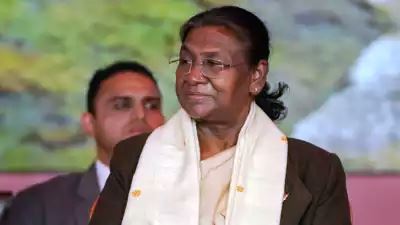In an extraordinary constitutional development, President Droupadi Murmu has formally sought the opinion of the Supreme Court of India under Article 143(1). Her query raises fundamental questions about the scope of judicial power, particularly whether courts can impose binding timelines on the President or Governors for assenting to Bills passed by state legislatures.
The move follows a landmark judgment in April 2025, in which the Supreme Court laid down time limits for Governors and, indirectly, the President, to decide on state Bills—despite the Constitution being silent on such deadlines.
Supreme Court’s April Ruling: Filling Gaps or Overstepping Bounds?
The Supreme Court bench, led by Justice Sanjiv Khanna, ruled that Governors must act on Bills “as soon as possible” and that if a Bill is referred to the President under Article 201, the President should take a decision within three months.
But what does Article 201 actually say?
Article 201 allows a Governor to reserve certain Bills for the President’s consideration. However, it does not mention any time frame for the President to approve or reject such Bills. This constitutional gap has, over the years, led to indefinite delays, frustrating state governments and raising concerns about democratic stagnation.
The Court, seeking to end this ambiguity, stepped in with judicially prescribed timelines. But in doing so, it may have inadvertently entered the domain of the executive.
President’s Question: Is This Justiciable?
President Murmu has now asked:
- Are such decisions by the President or Governor subject to judicial review?
- Can the judiciary impose procedural obligations on constitutional authorities in the absence of express provisions?
This presidential reference under Article 143(1) is both rare and significant. Historically, such references have been used only for matters of great constitutional consequence—such as in the Ram Janmabhoomi case or the Kerala Education Bill case.
Governance vs. Judicial Activism: A Delicate Balance
The President’s move reignites the long-standing debate on judicial overreach versus good governance. While the judiciary has a vital role in checking executive excesses, critics argue that setting deadlines without legislative backing blurs the separation of powers.
Constitutional expert Prof. Faizan Mustafa observes:
However, others argue that in the absence of statutory limits, the judiciary plays a necessary corrective role in ensuring timely governance.
Political Context: States Caught in the Crossfire
Many non-BJP ruled states have complained of excessive delays in receiving assent for their Bills, often accusing Governors of acting under political influence. The April judgment was seen as a welcome intervention to streamline legislative processes.
But now, with President Murmu raising the issue, there’s a risk that states could again face uncertainty, as a final judicial verdict may take months.
What Happens Next? Supreme Court’s Advisory Role
Under Article 143(1), the Supreme Court is bound to consider the President’s question and return its opinion. While this opinion is technically advisory, it carries immense moral and constitutional weight.
The case may involve:
- Re-examination of constitutional silence on timelines
- Limits of judicial interpretation versus judicial legislation
- Long-term impact on federal structure and legislative autonomy
Experts expect a larger constitutional bench to be constituted to hear the matter, given its national importance.
A Defining Moment for Indian Democracy
The question posed by President Murmu is not just about timelines or procedural clarity—it goes to the heart of how power is distributed and exercised in India’s democratic system. The Supreme Court’s upcoming opinion will determine whether the judiciary can enforce efficiency in constitutional processes or must defer to executive discretion, even at the cost of legislative delay.
Whichever way the Court leans, its decision will be a milestone in the evolving story of Indian federalism and constitutional governance.


